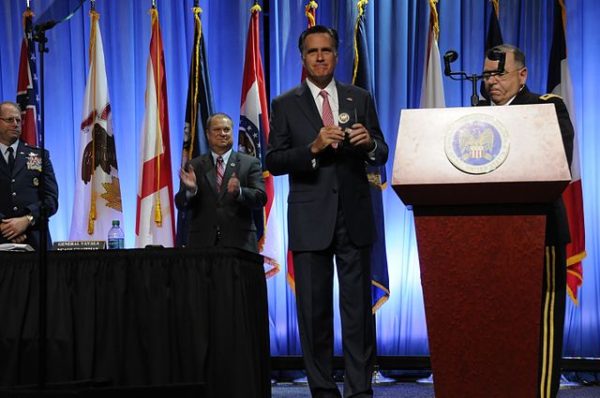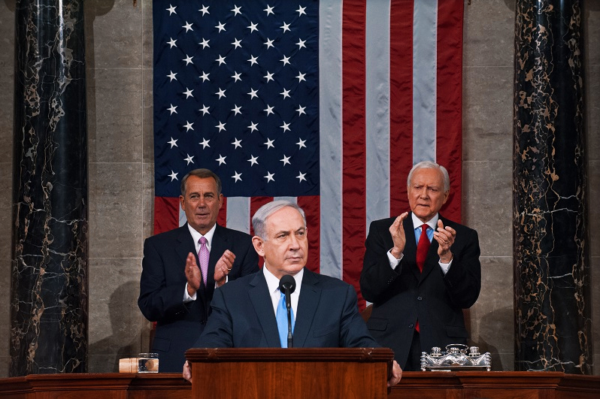One of the strengths of Israel’s special relationship with the United States is its bipartisan character. Democrats, Republicans and third party politicians regard Israel as a valued ally whose values and pro-Western foreign policy are completely in line with theirs, notwithstanding the disputes arising out of Israel’s extremely controversial settlement project in the West Bank.
As a result of these shared interests, Israel is seen by many Americans as a nation worthy of support in terms of political, economic and military assistance. This has been the case especially since the 1967 Six Day War, a watershed event that catapulted Israel into one of Washington’s key strategic partners and allies in the Middle East.

But can Israel remain a bipartisan issue on Capitol Hill in the era of Donald Trump’s presidency? This is not idle speculation. It’s actually a very pertinent question, as Moshe Yaalon, Israel’s former defence minister, has correctly suggested.
Speaking recently in Washington, D.C. at the American University’s Centre for Israel Studies, Yaalon warned that Israel is increasingly being perceived through the prism of partisanship. “I’m afraid of the fact that Israel is identified nowadays more with the Republicans,” he said. “Anti-Trump sentiments are becoming anti-Israel sentiments. This is my fear.”

Alluding to Prime Minister Benjamin Netanyahu’s proclivity for tilting toward Republican rather than Democratic policies, Yaalon said, “I’m afraid we are paying the price today for taking sides.”
In general, Yaalon was referring to Netanyahu’s close identification with the Trump administration, his speech to the U.S. Congress in the winter in 2015 in which he blasted President Barack Obama’s endorsement of a nuclear agreement with Iran, and his tacit embrace of Republican presidential candidate Mitt Romney in 2012.

Netanyahu was careful to remain neutral during the recent U.S. presidential election. Last September, when he visited New York City, he met Trump and his Democratic opponent, Hillary Clinton. But ever since Trump’s election and Netanyahu’s meeting with him at the White House in February, Netanyahu has so closely identified himself and Israel with the new president that one might think he had been eagerly awaiting a Republican victory and, with it, a wholesale reversal of Obama’s Middle East policy.
Five years ago, Netanyahu took flak for appearing to endorse Romney’s candidacy. Today, Netanyahu is cozying up to Trump. So keen is he on ingratiating himself with Trump that he has put his foot in his mouth on two jarring occasions.
In an attempt to absolve Trump of accusations that he condoned antisemitism during the election campaign, Netanyahu claimed there is no “greater supporter of the Jewish people and the Jewish state than Donald Trump.” At best, this was a debatable claim. And since when does an Israeli prime minister have a right to speak on behalf of Jews in the Diaspora?
Citing Israel’s security barrier as a success, Netanyahu also praised Trump’s decision to build a wall along the border with Mexico, thereby infuriating the Mexican government, embarrassing Mexico’s Jewish community and irritating the Democrats, who oppose this unilateral multi-billion dollar venture.
During his most recent visit to the United States, Netanyahu cast his lot with Trump in one more respect. He denounced the Iran nuclear agreement yet again, thereby aligning himself with the Republican Party and distancing himself from the Democratic Party, some of whose members have begun to express serious criticism of Israeli policies toward the Palestinians.
We’ve been there before.

Two years ago, much to Obama’s annoyance, Netanyahu accepted an invitation from the highly partisan Speaker of the House of Representatives, John Boehner, to address the U.S. Congress. Netanyahu lambasted the Iran deal, calling it a mistake of historic proportions. He thereby irritated Obama and stiffened the resolve of Republicans to oppose his diplomatic initiative to curb Iran’s nuclear program.
To be sure, Netanyahu is entitled to his views. But in blatantly bypassing the Obama administration and boldly criticizing its policy toward Iran in a public forum, Netanyahu committed another egregious faux pas. He so angered and alienated the Democratic leadership and caucus that some Democrats went as far as to boycott Netanyahu’s speech altogether. This was probably the first time American politicians had taken so drastic a step in protesting the actions of an Israeli prime minister.
Yet Netanyahu’s pro-Republican orientation is hardly surprising. Being a conservative himself, he’s a Republican in all but name. But if he’s not sufficiently careful and mindful in the future, he may well upset Democrats again and damage Israel’s bilateral relations with the United States.
Needless to say, Israel cannot afford to rile one of America’s two major governing parties, as Yaalon has wisely noted. But if Netanyahu hews to his current path, Israel will be the ultimate loser.
